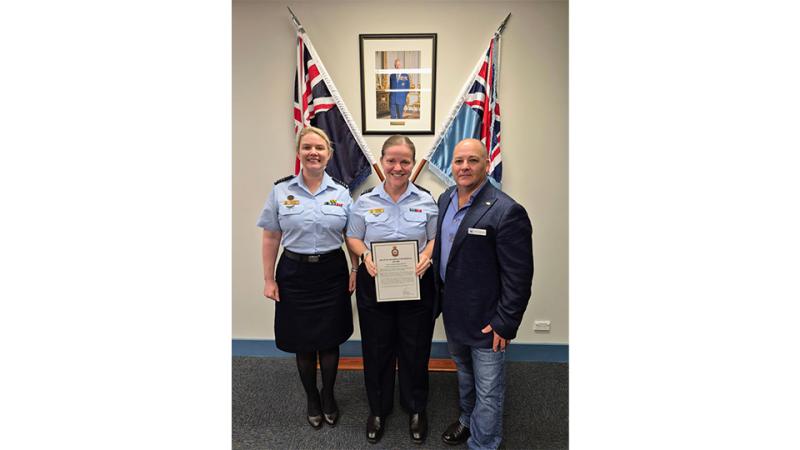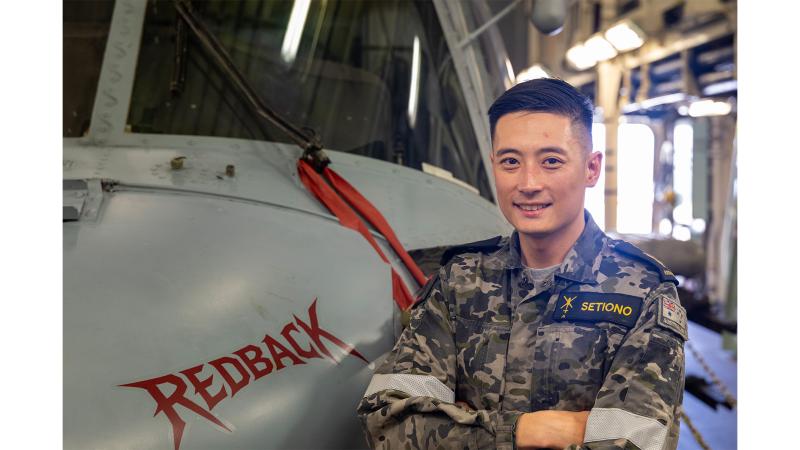18 September 2020
Stories of raging WWII battles in the Pacific shared by his foster father prompted Sergeant Dennis Maher to join Army in 1982.
James Paterson fought as an infantryman with 2/28th Battalion in the south-west Pacific, but about 50 years later, his son went to war in Iraq.
“Where I am today is because of him,” Sergeant Maher said.
“I’m an example of his advice that stayed with me – ‘If you’re going to do something, stick to it’.”
During deployments in 2005 and 2007, Sergeant Maher did more than 30,000km on patrol.
His soldiers were on edge, but he had to keep them and himself straight.
“There were a lot of young men there that needed confidence. I’d say, ‘you’ll be alright, I’m coming out too’,” he said.
“It was a bit like, ‘am I looking at my room for the last time?’. You just didn’t know. You look at life very differently after a while.
“That was hard. I had no time for myself until I got back to Australia, that’s when you realise what pressure is.”
Despite his bloodline coming from the Warrwa people of the Kimberley, Sergeant Maher was fostered at the age of one, growing up in Perth, playing sport, swimming and fishing in the Swan River.
He also attended Sea Scouts and Navy cadets, wearing a uniform most of his life.
“Back in the day, I would swim across the Swan no worries; I was a river rat,” he said.
He first joined the Reserves as he worked to become a fitter/machinist.
“Dad wouldn’t let me join Regs until I finished my apprenticeship. I’m so glad he made me do that. Sometimes, you’ve got to listen and trust,” Sergeant Maher said.
Originally joining the Royal Australian Artillery, he later transferred to the Royal Australian Electrical and Mechanical Engineers.
Army became like family and he was awarded 2 Field Supply Battalion soldier of the year in 1993.
Despite time patrolling in the desert, most of his career has been close to the ocean, including a posting to Pilbara Regiment as part of border protection.
He first engaged with Indigenous children during a school visit with 2nd Cavalry Regiment at Groote Eylandt near Gove in 2001, which sparked Sergeant Maher’s interest in mentoring.
A later visit to Maningrida school in Arnhem Land resulted in two students joining the Army.
After working with Navy’s Indigenous program in Cairns and the Defence Force Recruiting Indigenous recruiting team, he wanted to share his experience, saying it’s something money can’t buy.
“The beauty is it sets them up for life – what more satisfaction could you get than that,” Sergeant Maher said.
For the last 18 months, Sergeant Maher has supported the Army Indigenous Development Program with the Indigenous Development Wing of Regional Force Surveillance Group in Darwin.
In the role, he frequently fielded questions from young people about what Army is like.
“I tell them they have just as much opportunity as I did and it’s a lot easier today,” Sergeant Maher said.
Despite playing in the WA rugby league team at age 18, he represented the state in AFL when posted to the Special Air Service Regiment, going on to coach Aussie Rules for more than 20 years.
After 38 years, Sergeant Maher hangs up his Army uniform for good today.
While satisfied he’s done his part for country and community, Sergeant Maher hopes to continue coaching football when he moves to Ramingining in East Arnhem Land to work for the Education Department.


